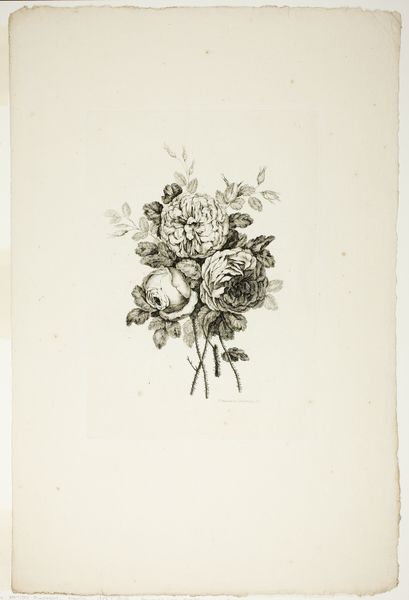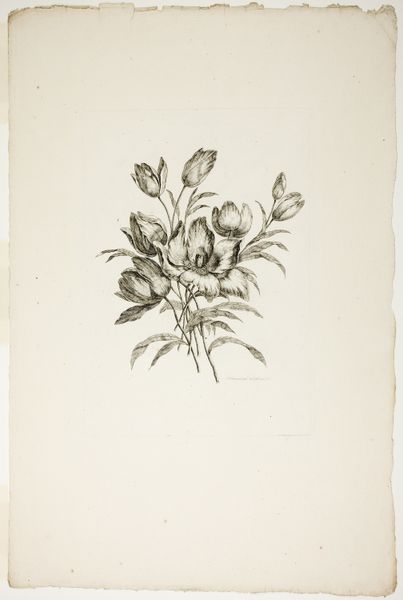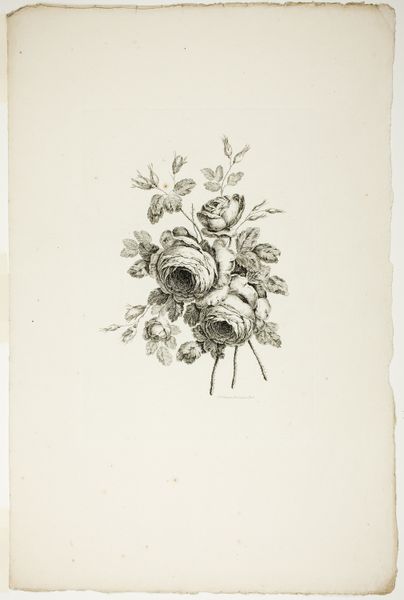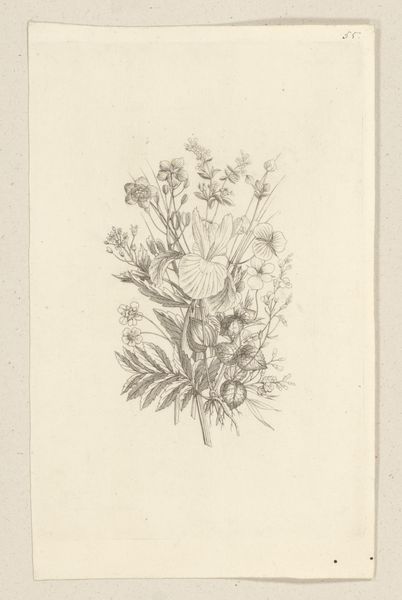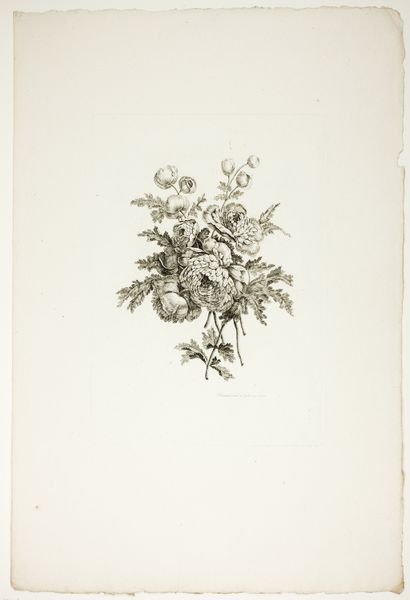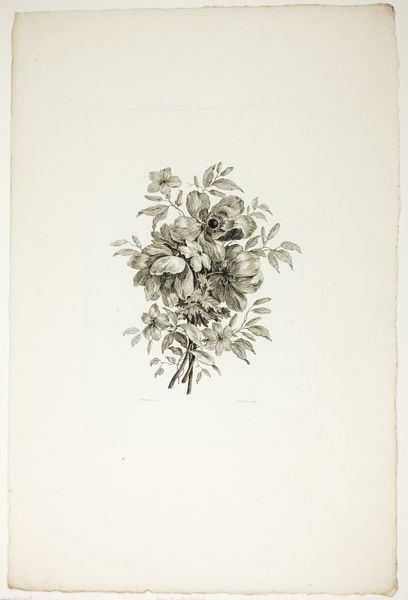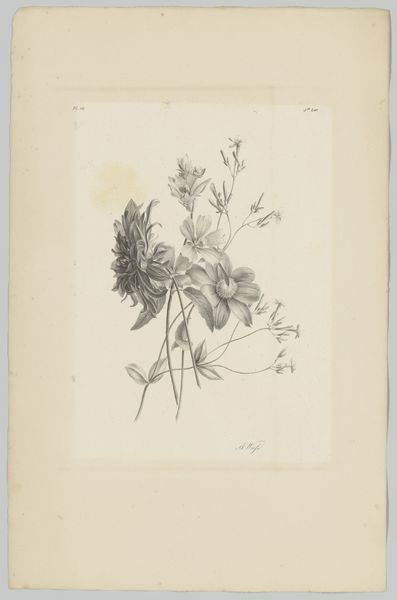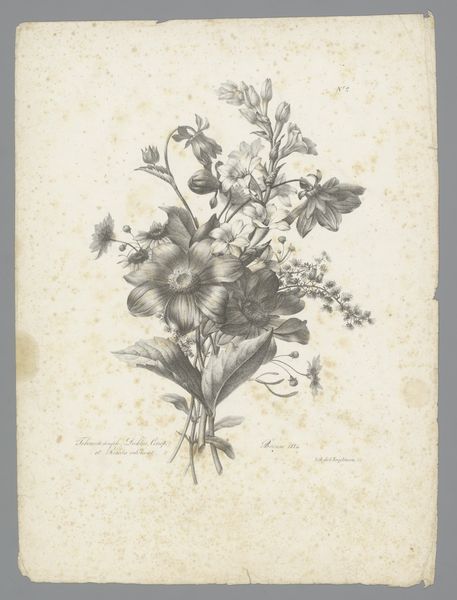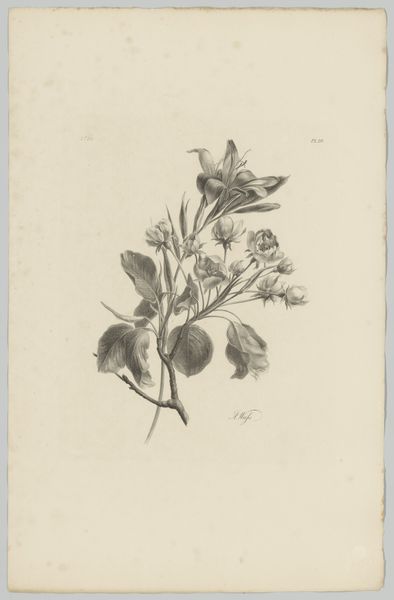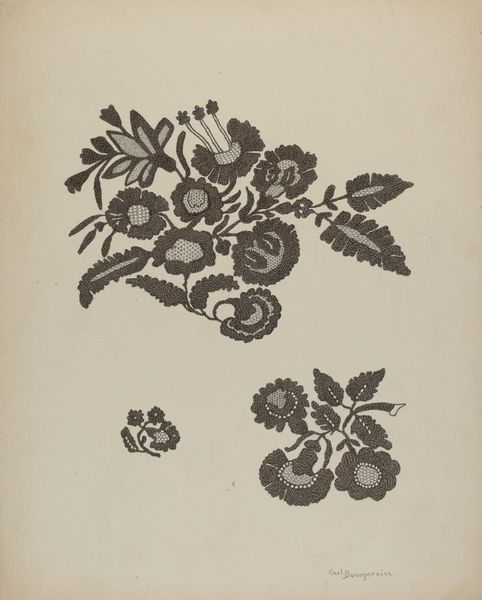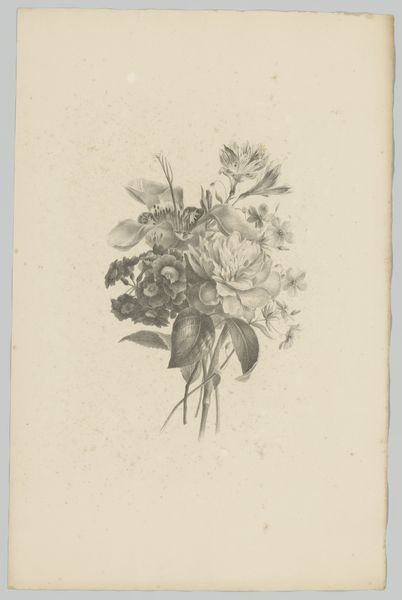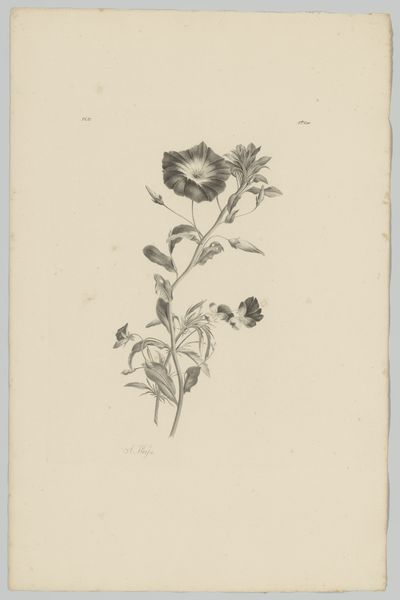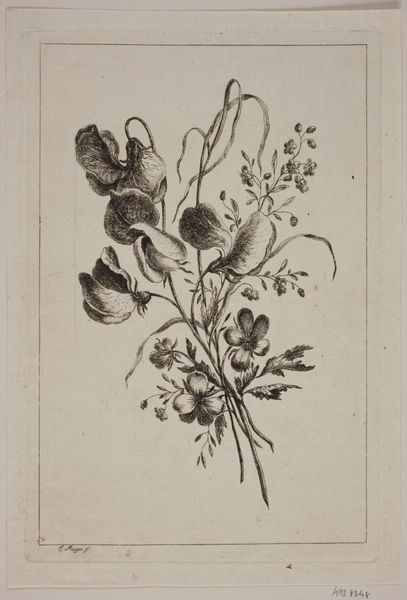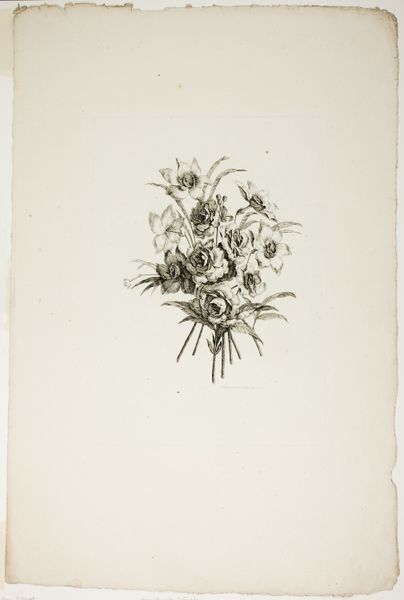
Bouquet with Carnations, from Collection of Different Bouquets of Flowers, Invented and Drawn by Jean Pillement and Engraved by P. C. Canot Possibly 1760
0:00
0:00
drawing, print, etching, paper
#
drawing
# print
#
etching
#
paper
#
15_18th-century
#
line
#
botanical art
Dimensions: 300 × 211 mm (plate); 540 × 360 mm (sheet)
Copyright: Public Domain
This is 'Bouquet with Carnations,' an engraving by Pierre Charles Canot from the 18th century, part of a collection of floral designs. The carnation, centrally placed, has, for centuries, been imbued with meaning, from early Christian art where its red color symbolized Christ's blood, to Renaissance paintings where it signified love and betrothal. Its recurring presence across epochs speaks to our enduring fascination with nature and its symbolic potential. Think of Botticelli's 'Primavera,' where flowers scattered across the canvas evoke fertility and renewal. The persistent appeal of floral motifs taps into a deep, subconscious connection with life's cycles. Consider how the carnation, in different hands and times, has been used to express varied emotional states. Its presence evokes a sense of continuity, reflecting how symbols evolve, are remembered, and find new life in each epoch.
Comments
No comments
Be the first to comment and join the conversation on the ultimate creative platform.
